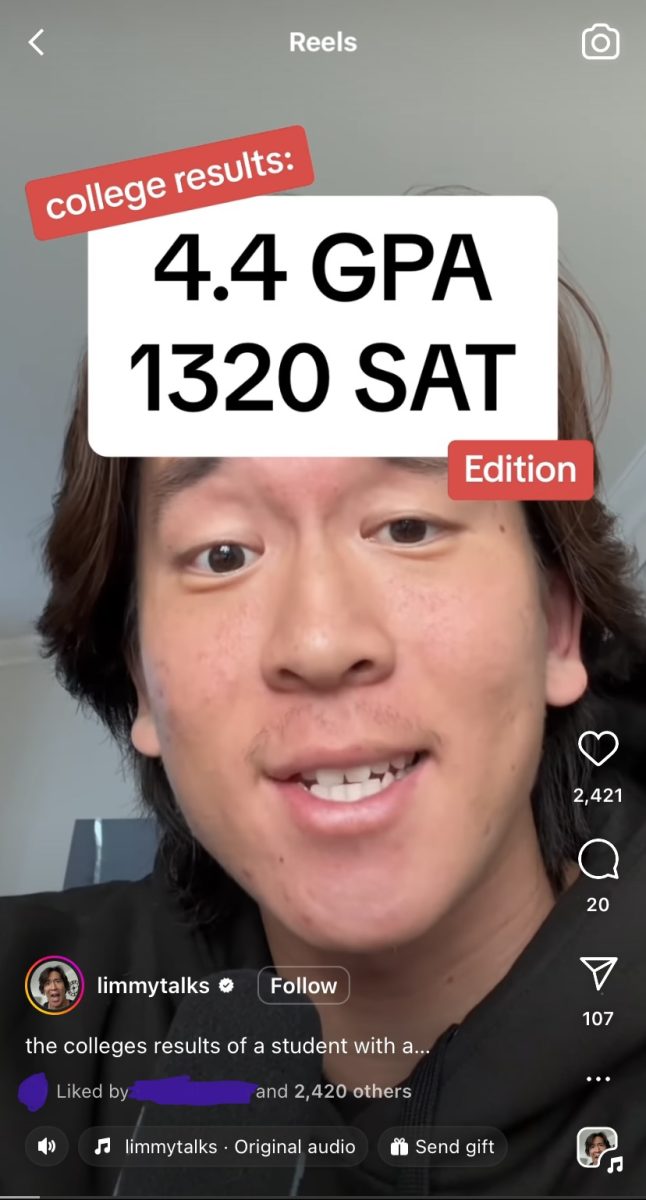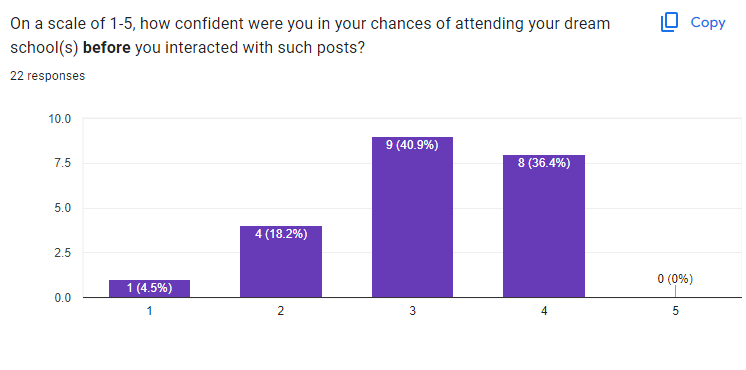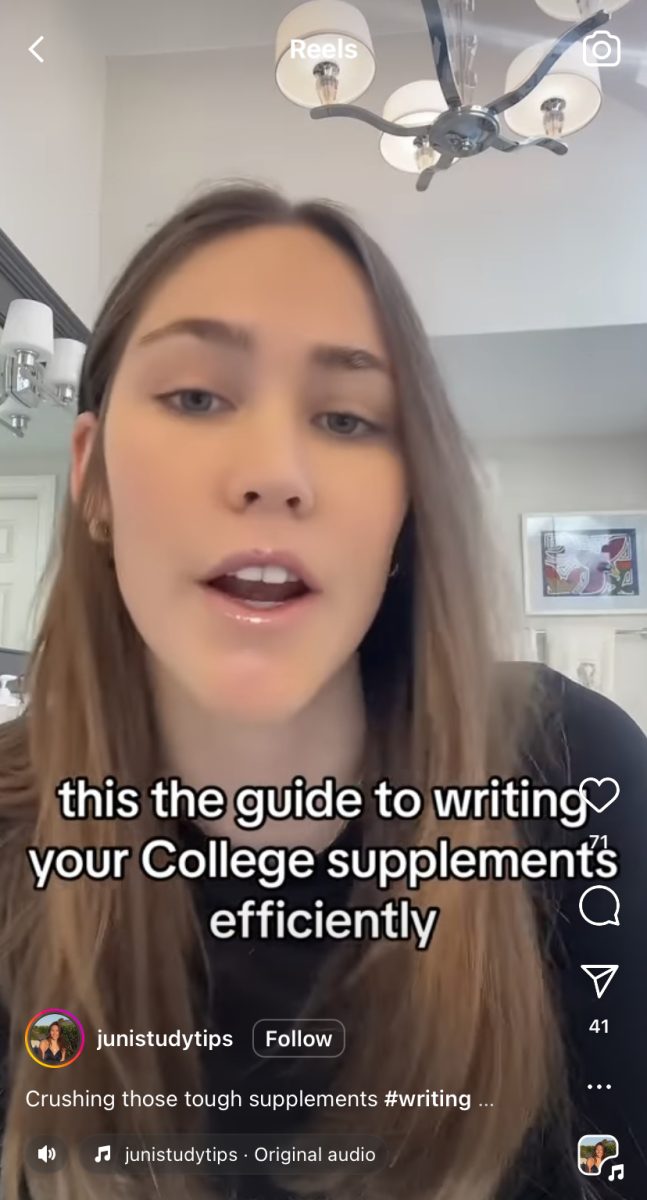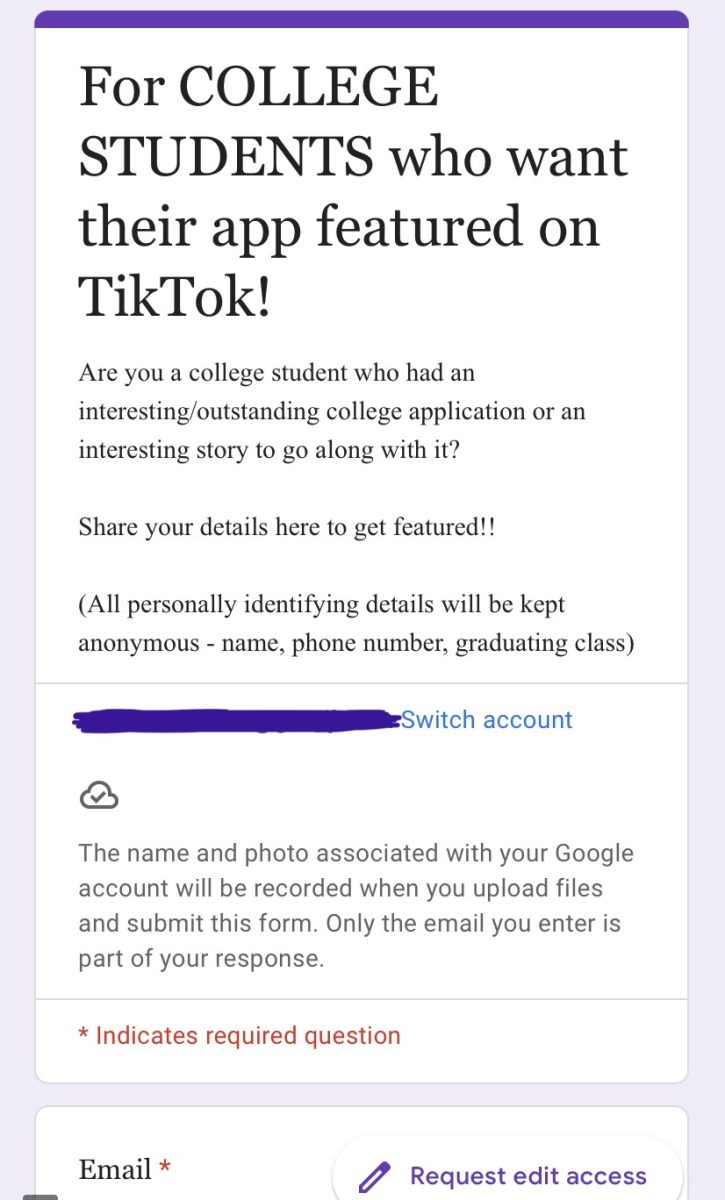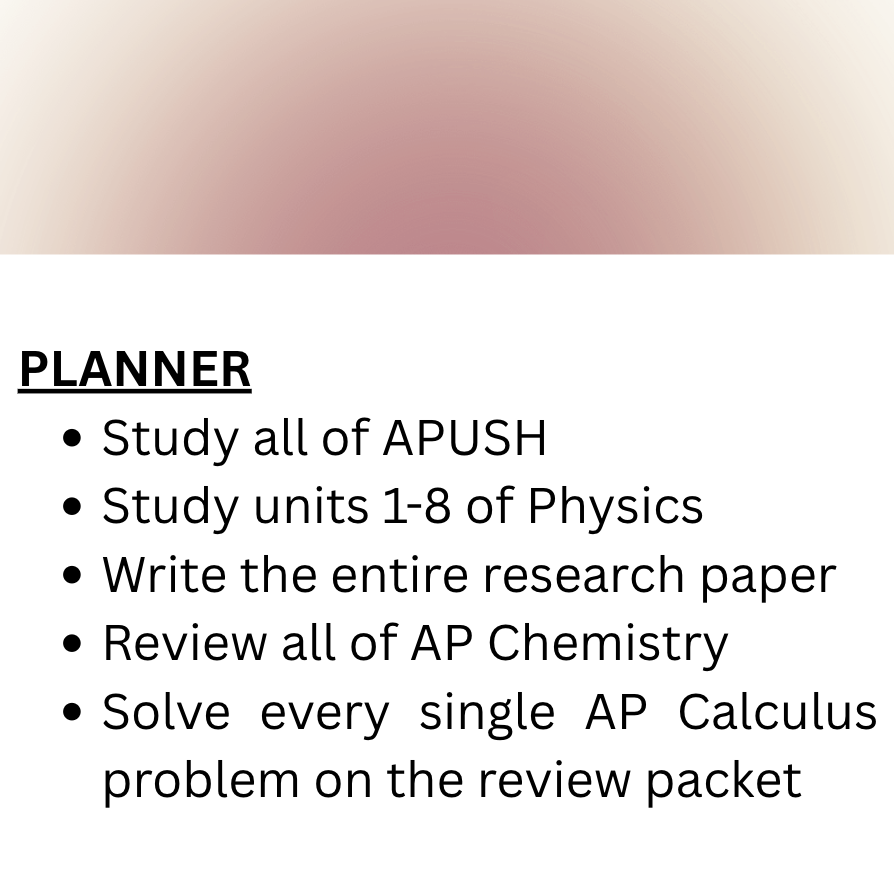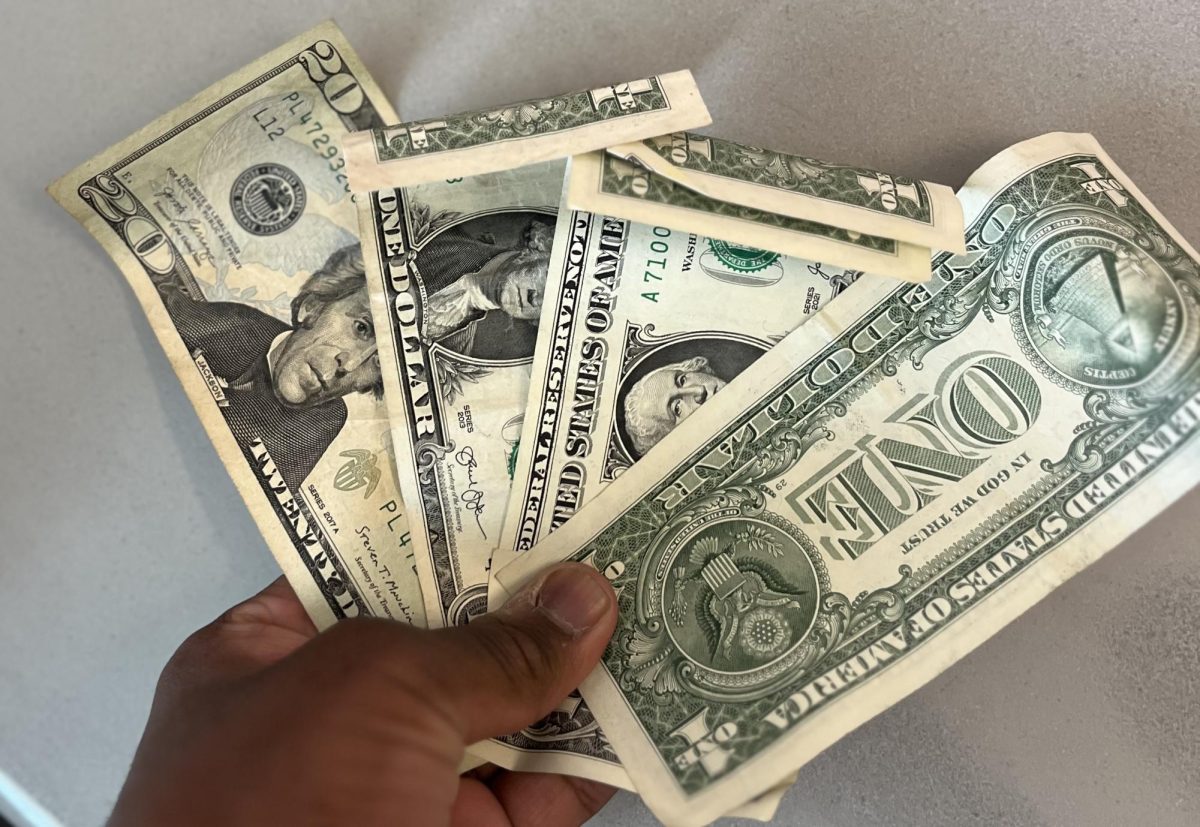It is undeniable that social media is an integral, and almost routine, part of the average teenager’s life. According to a 2023 Gallup Poll, approximately 4.8 hours of a teenager’s day is devoted to social media consumption. Teens are in for some very big life changes that are a bit more important than their current decisions of deciding whether to go to their friends’ parties or whether to stop for boba tea: impending adulthood, future careers, and, most notably, college applications.
Understandably, a large amount of content reflects college admissions. According to Top Tier Admissions, a college counseling organization, the hashtag #collegerejection boasts a whopping 65.1 million views on TikTok, while the more inspiring hashtag #collegeeacceptance (yes they clarify with two “e’s”) only has 54.8 million views to its name. Such posts have detrimental effects on the moods of viewers (even those who are not applying to college), as discussed in Jay Caspian King’s article “The Particular Misery of College Admissions TikTok.” Positive posts seem to not be as popular as the negative, more disappointing ones, and why is that?
I can speculate that it has something to do with people getting more rejections than acceptances (so there is more rejection content), creators seeking attention or trying to provide other students with a sense of solace, or kids unintentionally attracted to this negative content at greater proportions. One thing I can be sure of is that kids are exposed to this content and it has a mostly negative effect on their perceptions of their college acceptance chances. While I do think these posts can be insightful to students, and I look to them for reference as well, I think they must be consumed in moderation. Although they can be used as a frame of reference, they can also have unintended negative ramifications.
In a survey I conducted of 22 current high school seniors across the United States, 77.3% of students reported that, on a scale of 1-5, their confidence in getting accepted into their “dream school” before viewing college admissions posts was a three or four. After viewing these posts, confidence ratings shift, with 54.5% of students rating their confidence at a two or below and 45.5% of students reporting a three or above.
100% of students surveyed engaged in college admissions-related social media posts, while 54.5% actively seek out these posts. Popular college admissions accounts include LimmyTalks, Next Admit, Passion Prep, Standout.Search, Scholarship Gabby, Gohar Khan, and more. The question remains — why would some particular students seek out these posts if the majority of them leave feeling less than others?
“As a first generation [sic] student, I want to put my best foot forward and seek whatever resources and guidance I can get my hands on to get into college. It doesn’t hurt to get some tips and think outside of the box! More competitive schools and reach schools look for specific things so I want to envision how I can meet those requirements and what they are,” said Spanish Fork High School (Spanish Fork, UT) Senior Addalice Flores.
While some students find them insightful, others, namely 45.5% according to the survey, actively avoid these posts due to the negative feelings they cause.
“I don’t normally like seeking out these posts because I know that most of these influencers either may be lying or are exceptionally gifted and/or privileged. Additionally, they come across as arrogant because of how they’re advertising their high achievements and trying to get clout for it,” CVHS senior Manizeh Rahman said.
One thing that is important to note about Manizeh’s opinion is that it is difficult to be sure of the truthfulness behind these posts. On LimmyTalk’s account, run by Duke senior Daniel Lim, I tried to discover how I would get my college story to possibly be featured on his channel if I were a potential contributor. It was very easy. It was simply a Google Form listed on a LinkTree in his Instagram bio, and no proof was required. Other students also express this concern.
The average rating of helpfulness rested at a two, which does not align with the percentage of students who actively consume this content. While the people who post their or others’ acceptances/rejections with highly impressive application components may not be entirely real, the effects these posts have on students are.
“I believe these types of admissions videos make me feel anxious about my future. I know I have a chance in many of the schools I applied to, but seeing these stats of genius kids makes me feel extremely discouraged about my application. So much so that I didn’t finish my application for a few of the more difficult colleges or universities just because I didn’t feel I had the chance,” said CVHS Senior Roxell Bonilla.
A similar sentiment is not isolated to only CVHS seniors. Other students stated that, while they may find the posts somewhat helpful, the positive aspects can outweigh the negative.
“I actively seek out these posts because I think that they give me a better idea of what my possible future peers have accomplished and what I think I’d be able to do if given the proper resources in college,” Rialto High School senior (Rialto, CA) Senior Raja Saadiq-Saoud said. “I think that these sorts of posts made me feel a bit less confident in my grades and extracurriculars and made me think I didn’t try hard enough. In general, I think that the posts give students the wrong idea about applying to college and cheapens the high school experience overall.”
With all things considered, I do not think these posts should be taken down. In my perspective, they do not have bad intentions behind them. I genuinely think the creators of these posts are trying to spread knowledge and information, attempting to lift a curtain cloaking an enigmatic, and not always fair process (remember Varsity Blues and Aunt Becky?). While this may be true, they should be consumed in moderation, especially since they may not always be reliable, and some students already put this into practice.
“They definitely paint the picture of what the “ideal candidate” looks like. The stories and examples they share make the admissions process look more rigid that in [sic] truly is…” Brunswick High School (Brunswick, ME) Senior Jaden Nicita said. “The videos make us forget that the process is holistic. I think they can be helpful though for low-income students who don’t have the privilege or means to afford a college guidance counselor. They provide the tips and tricks one would provide all for free.”
The next time you’re waiting on results for what the next four years may or may not hold for you and you stumble upon a college-related admissions post after a funny cat video, take it with a grain of salt. They can be entertaining and interesting, and maybe provide reassurance that people are experiencing the same thing as you. Take what help you can get from them while being conscientious they can also be worry-inducing. Be mindful that you can only control so much about the college admissions process. If you find yourself going down the “I didn’t do enough” rabbit hole, maybe take a step back, breathe in and watch another funny cat video instead.


